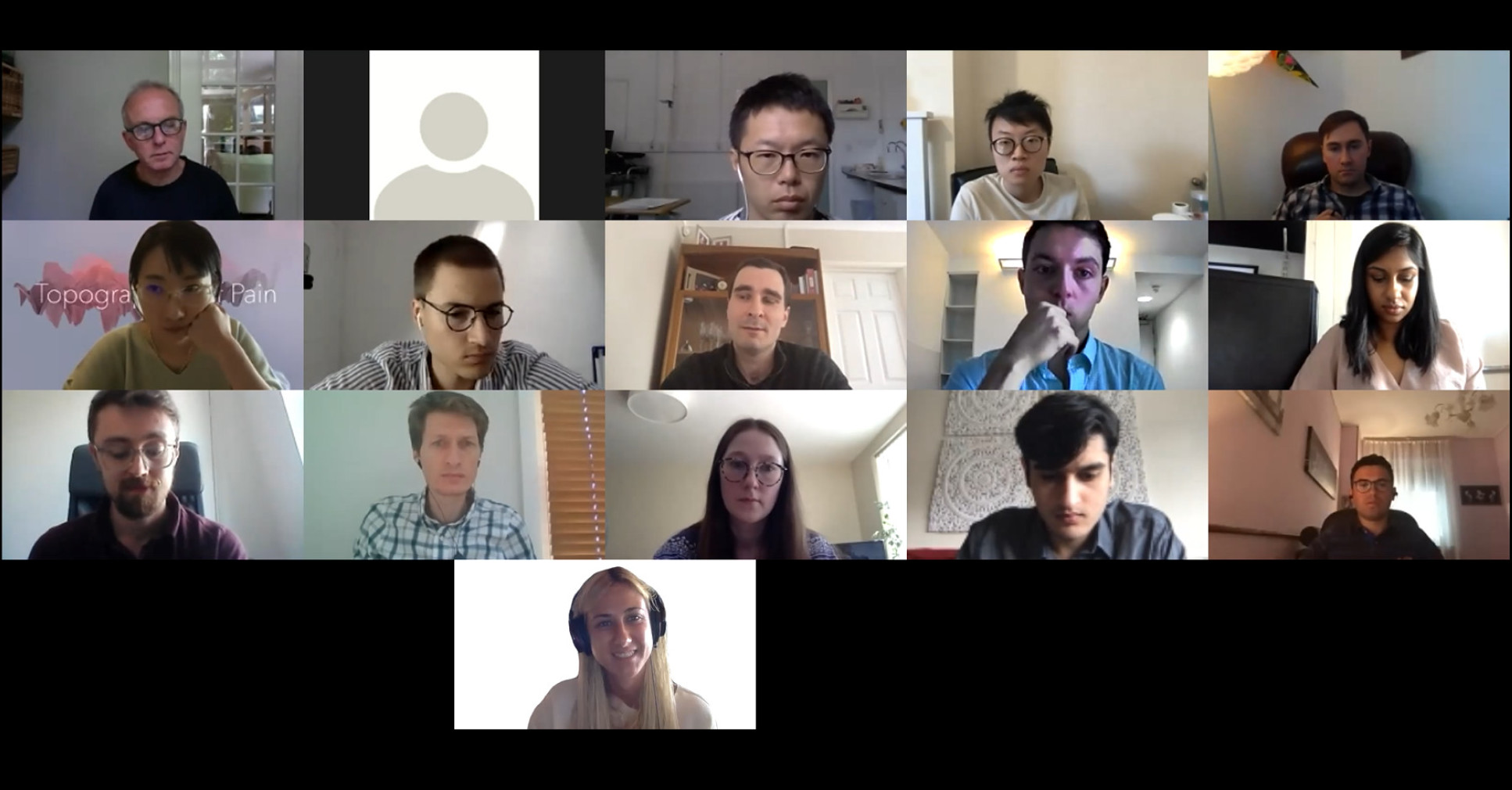MedTech SuperConnector partners with GSK Consumer Healthcare in new cohort

The programme kicks off with a bootcamp where participants take their first steps as entrepreneurs
MedTech SuperConnector (MTSC) has partnered with GSK’s Consumer Healthcare team NEXT to support 13 early career researchers.
MTSC, a Research England funded Imperial-led initiative which aims to accelerate the commercialisation of medical devices, has partnered with GSK’s Consumer Healthcare team NEXT to support 13 early career researchers with novel technical solutions to a contemporary challenge - redefining how pain is understood, measured and treated.
Partnering with an organisation which has both the industry expertise and capacity to support to the researchers over the course of the accelerator programme made GSK Consumer Healthcare an obvious choice for MTSC. Alongside support from GSK Consumer Healthcare programme participants will have access 1-2-1 business coaching, especially tailored workshops and the funding to fast-track the development of their technology.
“This Cohort has the added benefit of our collaboration with GSK’s Consumer Healthcare team NEXT, providing industry expertise, insight and support to the technologies on this fourth and final MTSC intake. The Challenge call was crafted and decided upon through a series of consultations together with our consortium partners and GSK, ensuring a relevant and industry led theme to our current group of early career researchers and their technologies,” says Hiten Thakrar, Programme Manager.

As a result, the call for applications uncovered novel innovations designed to solve very common but specific problems, allowing the programme team to develop a diverse cohort of technology focussed entrepreneurs.
Dr Terry Clark, consortium representative from the Royal College of Music says, “[pain] is one of the biggest topics we talk about. This is providing a very specific and concrete example of where it is of direct relevance to a lot of the work we do.”
Wearable solutions for back pain
 Lower back pain is a leading cause of chronic disability and pain in the UK, affecting 1 in 3 people and costs the British economy more than £10 billion annually. Poor posture over time is predominantly the result of muscle fatigue and limited postural awareness.
Lower back pain is a leading cause of chronic disability and pain in the UK, affecting 1 in 3 people and costs the British economy more than £10 billion annually. Poor posture over time is predominantly the result of muscle fatigue and limited postural awareness.
To solve this, Reneira and her team from Imperial College London developed an unobtrusive wearable and interactive smartphone/computer gaming interface, which is the first to continuously measure posture with real-time bio-feedback and facilitate active postural correction during the performance of physiotherapy-based exercises.
The programme will enable them to find users, develop a detailed business plan and create a commercial garment optimised for their target customers.
Everyday innovation
 Many people who suffer from joint and muscular ailments struggle with existing child resistant caps. This difficulty often leads to pain when accessing medications and household cleaning products the disabling of caps to make them easier to open, or the moving of bottle contents to easier to access containers.
Many people who suffer from joint and muscular ailments struggle with existing child resistant caps. This difficulty often leads to pain when accessing medications and household cleaning products the disabling of caps to make them easier to open, or the moving of bottle contents to easier to access containers.
“These issues increase the incidents of joint and muscle related pain, and increase the risk of young and vulnerable individuals being accidentally poisoned by the container's contents.”
Richard, a PhD student at Bucks New University, has produced a low friction child resistant cap that allows for easy access to those suffering from joint and muscle related conditions, while keeping children out.
Throughout the programme, they’ll focus on testing the design concept and preparing it for mass production.
Healing untreatable wounds
 Around the world, between 9.1 and 26.1 million people develop diabetic foot ulcers annually, a third of which never fully heal and can lead to foot amputation. Anna Worsley and her wider team at the Royal Veterinary College and University College London are developing a gel treatment for diabetic foot ulcers to change this.
Around the world, between 9.1 and 26.1 million people develop diabetic foot ulcers annually, a third of which never fully heal and can lead to foot amputation. Anna Worsley and her wider team at the Royal Veterinary College and University College London are developing a gel treatment for diabetic foot ulcers to change this.
“'Wound healing is a series of stages. Diabetic ulcers are stuck in the early inflammatory stage. The idea is to try and trigger healing to get them through the entire cycle.'”
Over the six-month programme the team are aiming to continue testing the gel and set up a new animal study with the goal of moving on to human studies on their way to market.
The diversity of solutions – mechanical design innovations alongside medical treatments based on molecular science – is a reflection of the diversity of the consortium. Seven of the eight consortium institutions have participants in this cohort, ready to take their innovations out in to the world to make an impact.
“I am very excited to see how the innovators progress together as a cohesive group through the programme – as they’re all be working on very diverse technologies and solutions, but focused on one specific direction - treating, measuring and interpreting pain,” said Mr Thakrar on the influence of diversity. This diversity will help to create a community that benefits the goals and ambitions of the entire group.
Article text (excluding photos or graphics) © Imperial College London.
Photos and graphics subject to third party copyright used with permission or © Imperial College London.
Reporter
Eleni Assargiotis
Enterprise